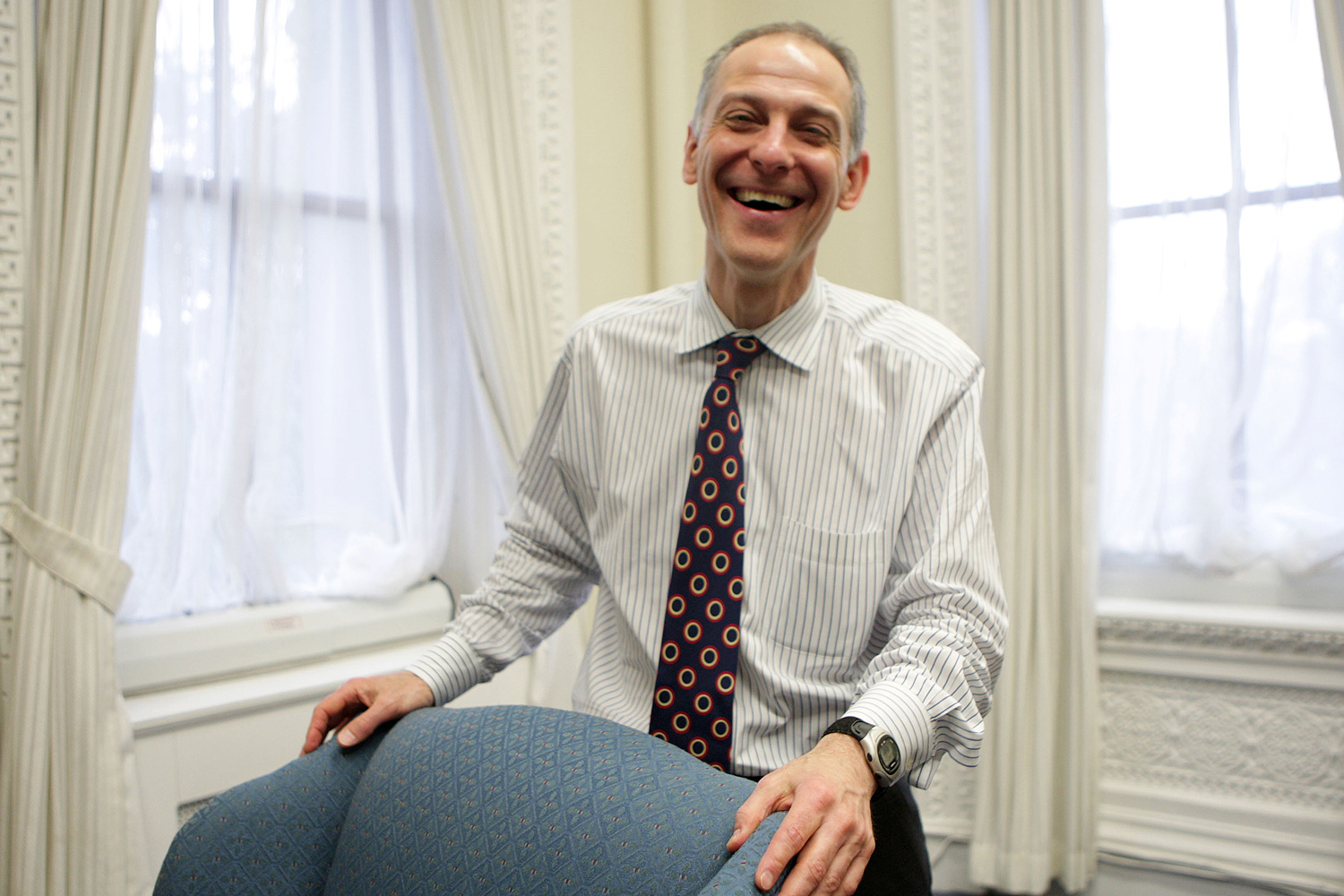Some years ago I interviewed Congressman Rahm Emanuel for a profile I was writing of Bill Daley, and again for a biography I was writing of Bill Clinton. In both cases, I ran into Rahm around his summer home across the lake in Michigan, and in both cases he boasted that he was “best friends” with each man, talked to each sometimes more than once a day, and, yes, he’d give me interviews. The cassette tapes, which I hope are still dry and safe somewhere in my house, are priceless: rushed sentences connected by profanities. The man who I was then certain would be the first Jewish Speaker of the House didn’t really want to talk about Clinton or Daley, so the profanity was a tool he used to avoid communicating.
The new Rahm is so damned calm and controlled and even sweetly teary-voiced, especially when talking about helping our city’s children. Sad to admit, I sometimes miss the old Rahm, so when I read a review of his older brother Ezekiel “Zeke” Emanuel’s just-published book, Reinventing American Health Care: How the Affordable Care Act Will Improve our Terribly Complex, Blatantly Unjust, Outrageously Expensive, Grossly Inefficient, Error Prone System in the Washington Post, I decided to buy the book based on reviewer Amanda Bennett’s remark that Zeke “peppers his story with accounts of expletive-laden exchanges with his brother Rahm.”
Serves me right, I guess, for being so superficial. I found just one example of the old F-bomb Rahm hitting Zeke—who as a special White House adviser on health care reform was directly involved with writing the law—and that dates back to the first Obama term when Rahm was President Obama’s Chief of Staff and the ACA was being drafted:
“One afternoon… during this policy development process I wandered into my brother’s office just to check in with him. Rahm asked me about some analyses I was doing for him. Then looking down at the two papers on his otherwise clutter-free desk, he asked in his usual staccato, ‘What else is going on, Zeke?'
“‘I’m also working on the medical malpractice proposal I told you about,’ I began to explain. He immediately cut me off: ‘Shut the f*** up!’ We are not doing malpractice. Period. Every time the AMA comes in here they don’t talk about malpractice. It is SGR #1, 2, and 3 with those guys. [The sustainable growth rate sets a “target” for how much doctors should be paid for providing services to Medicare patients.] We don’t need to do malpractice for doctors, and I am not alienating the president’s base for nothing. Stop it.’ And that told me everything about the politics and policy of medical malpractice. Democrats would do malpractice reform under 2 circumstances: if they needed to include reform to keep the physicians, especially the AMA, supporting the ACA legislation, or if they needed to attract Republican support for the larger reform bill. Neither was the case. The AMA was supporting the bill, and regardless of what they were saying in public, when they met with the senior administration leaders they were not emphasizing malpractice reform; instead, the AMA lobbyists were focused on fixing the SGR and physician payment…. And not a single Republican was interested in negotiating and compromising about anything related to health care reform. So there was no need to develop a malpractice proposal to attract Republican support.”
Zeke also reiterates in this book that while the President was pushing for comprehensive reform, the politically canny Rahm and Vice President Joe Biden were pushing to take care of the economy first and then to propose “incremental” changes to the health care system.
Zeke, the eldest of the Emanuel brothers, now a vice provost for global initiatives and chair of the department of medical ethics and health policy at the University of Pennsylvania, has been a highly visible advocate for the ACA, tangling fearlessly with Fox News’ Megyn Kelly and Chris Wallace during the Keystone Cops rollout of the ACA last October, as well as chatting with friendly MSNBC hosts, such as Chris Matthews, Alex Wagner, and Rachel Maddow.
Besides writing this latest book, which is written in plain English, provides a centuries-long historical context for health care reform, and is more interesting than I expected, Zeke has coauthored three other health-care related books and written Brothers Emanuel: A Memoir of an American Family. He’s also a regular pro-ACA spokesman on the op-ed pages of major newspapers, and unafraid to count as virtues of the ACA the very qualities—bringing an end to employer-provided health insurance, closing hospitals, and, at least in the short run, limiting choice of doctors and hospitals—that ACA opponents continue to target as deadly defects.



